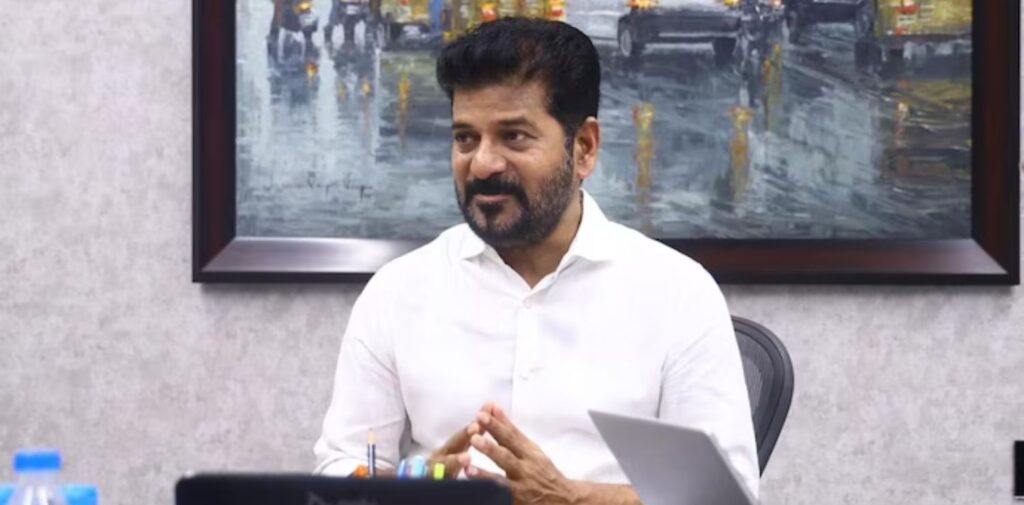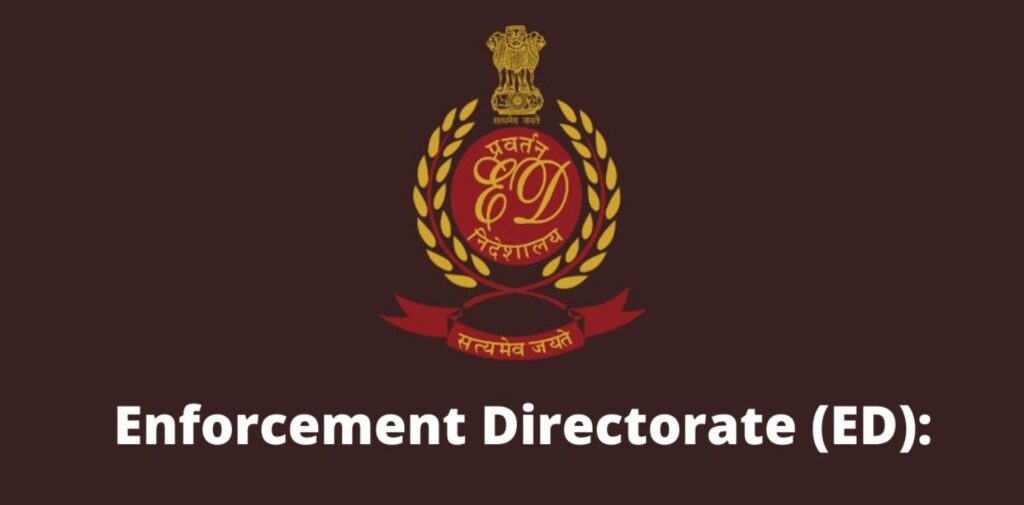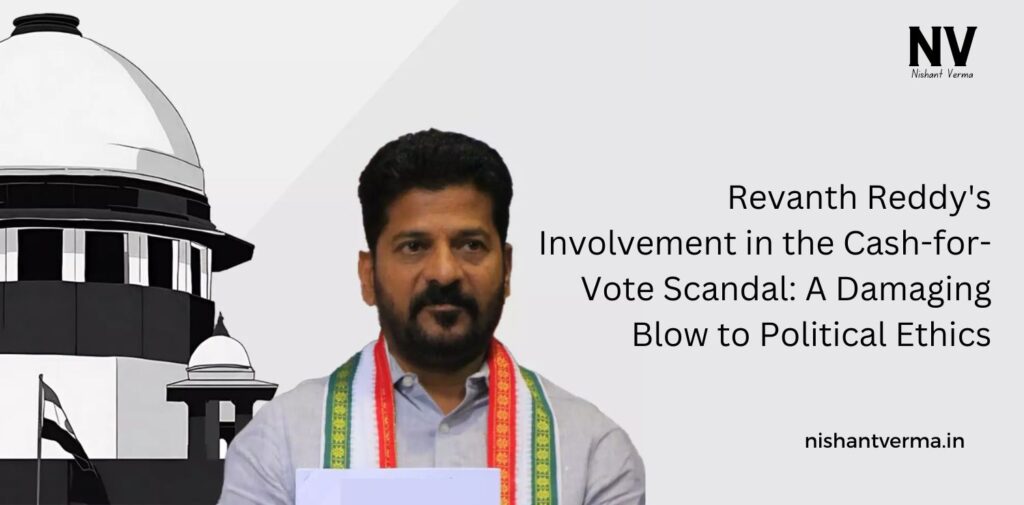Revanth Reddy, a prominent political figure and Congress leader in Telangana has been embroiled in a serious legal controversy over his alleged involvement in the infamous “cash-for-vote” scam. The allegations of corruption and money laundering against him have escalated, with the Enforcement Directorate (ED) playing a pivotal role in uncovering new evidence. As investigations progress, this scandal has raised concerns about the erosion of ethical standards in politics, especially in the context of bribery and misuse of public office.
The Cash-for-Vote Scandal
The cash-for-vote scandal dates back to 2015 when Revanth Reddy allegedly attempted to bribe an MLA in exchange for securing a vote in favour of his party during the Telangana Legislative Council elections. Caught in a sting operation, Revanth Reddy was arrested after being recorded offering ₹50 lakh as part of the bribe. Although he was later released on bail, the case has continued to haunt his political career, with fresh developments emerging that point to deeper levels of financial misconduct and possible money laundering.
The ED’s recent involvement has added a significant layer to this case. The agency has submitted charge sheets that suggest Reddy’s direct involvement in financial irregularities, highlighting a potential violation of the Prevention of Money Laundering Act (PMLA). The agency has meticulously analyzed the financial transactions linked to the case, casting a shadow over Reddy’s claims of innocence.

Revanth Reddy’s Defense
Despite these serious allegations, Revanth Reddy has continuously denied any wrongdoing, framing the entire case as politically motivated. He has insisted that his opponents orchestrated the scandal to tarnish his reputation and hinder his political ambitions. Reddy has maintained that he can prove his innocence in court, accusing his rivals of using legal and media channels to defame him during crucial election periods.
The Role of the Enforcement Directorate
The ED’s involvement in this case signifies the seriousness of the charges. As a central agency tasked with investigating financial crimes, the ED is mandated to pursue money laundering cases under the PMLA. The investigation into Reddy’s finances has revealed potential discrepancies, further complicating his defence. The ED’s focus on Reddy’s financial dealings could lead to more severe legal consequences if he is proven guilty.
This case has once again brought to light the growing influence of money in politics, raising questions about how far leaders are willing to go to secure power. The use of illicit funds and bribery to manipulate elections is a threat to democratic principles, and the outcome of this case could set a precedent for future investigations into political corruption.

The Political and Ethical Implications
The scandal has broader implications for the Indian political landscape, particularly in Telangana. As Revanth Reddy continues to lead the Congress party in the state, the allegations against him have not only damaged his reputation but also weakened public trust in his leadership. For a political figure aiming for greater influence, these allegations have created significant roadblocks.
More importantly, this case serves as a grim reminder of the deep-rooted issue of corruption in Indian politics. While politicians often claim to serve the public, incidents like these expose the ethical vacuum that persists within political parties. Corruption, bribery, and money laundering are not just legal infractions; they are betrayals of the public trust. Reddy’s involvement in this scandal tarnishes his legacy, and regardless of the outcome, the damage to his reputation is likely irreversible.

A Call for Accountability
The Revanth Reddy case illustrates the urgent need for greater transparency and accountability in Indian politics. While politicians frequently escape legal consequences due to political connections and bureaucratic loopholes, public scrutiny remains critical in holding them accountable. The media and investigative bodies must continue to play their roles in exposing corruption and ensuring that justice is served, regardless of the individual’s political stature.
As the case progresses, the public will be closely watching the court proceedings, hoping that the truth will emerge and justice will be served. The case not only questions Revanth Reddy’s integrity but also highlights the broader issue of money power in Indian elections. The outcome of this scandal will be a significant test for the Indian judicial system and its ability to handle high-profile political corruption cases.
Conclusion
The allegations of money laundering and bribery against Revanth Reddy serve as a stark reminder of the challenges facing Indian democracy. While Reddy may continue to deny the charges and frame them as politically motivated, the weight of evidence uncovered by the ED tells a different story. The involvement of central investigative agencies signals the gravity of the case, and as the legal battle unfolds, it will become a litmus test for political accountability in India.
This case is a black mark on Revanth Reddy’s career, and it stands as a testament to the toxic influence of money in politics. The public and media must continue to demand accountability, and the judiciary must ensure that justice is served, free from political bias. Only then can Indian democracy begin to heal from the deep wounds inflicted by corruption.




